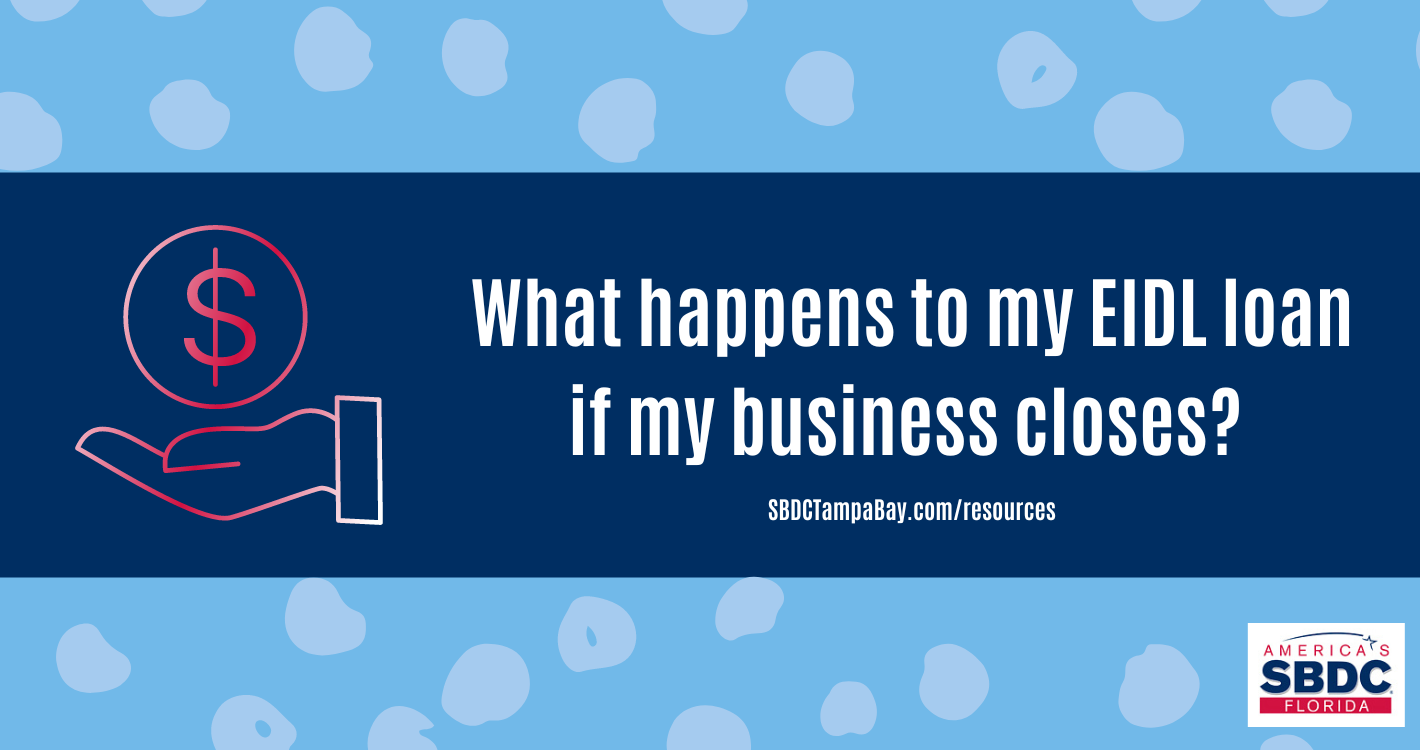What happens to my EIDL loan if my business closes?

by Simplice Essou, CPA | October 27, 2022
Editor’s Note: Florida SBDC at USF business consultants are not attorneys. This article does not represent binding legal advice. Please consult an attorney/lawyer to discuss the specifics of your business situation.
What is the EIDL?
In the wake of the COVID-19 pandemic, millions of small businesses have received federal aid in the form of the Paycheck Protection Program (PPP) loan and/or the Economic Injury Disaster Loan (EIDL). These programs helped save many small businesses. However, despite the federal assistance, many others did not survive. Business owners who were forced to close their doors may be asking themselves if they are responsible for the debts contracted through the EIDL program.
The EIDL is intended to help businesses meet financial obligations and operating expenses that could have been met had a disaster not occurred. For example, a business owner whose business got shut down due to COVID-19 restrictions could potentially qualify for an EIDL to help cover expenses such as rent and working capital (equipment repair, inventory, etc.). For-profit borrowers under the EIDL program could get a fixed 3.75% rate, while nonprofits could get a 2.75% rate. Borrowers have up to 30 years to pay the loan back.
Whether a loan guarantee was needed for the EIDL depended on the amount of the loan. For an EIDL of $25,000 or less, no collateral or personal guarantees were required. That means that for the vast majority of defaults on these small loans, business owners’ personal assets will not be at risk of seizure. In the event of a business default on a federal government loan, the lending financial institution may report the default to credit scoring companies. This may make obtaining loans in the future more difficult and more expensive.
In general, EIDLs between $25,000 and $200,000 did require collateral but generally do not require personal guarantees. That means that collateral such as inventory or business equipment could be seized in the case of a default. However, the owner’s personal assets are generally safe.
For loan amounts more than $200,000, collateral and personal guarantees were required. In this case, the owner’s personal assets such as real estate and vehicles could be seized to satisfy the loan payment.
The EIDL is a non-forgivable loan, contrary to the Paycheck Protection Program (PPP).
Are EIDL loans guaranteed? What happens if I cannot pay?
If your business cannot repay the EIDL loan the first thing you should do is determine whether your loan is in default or just delinquent. These are two different states in the life of a loan and will determine the next steps. Delinquent means that you are behind on your loan repayment. Default happens when the lender determines the business will not be able to pay the loan back.
What happens if I default?
Defaulting on a federal loan can have serious consequences. When confronted with a default or prospect of a default, it is important to contact the U.S. Small Business Association (SBA) and discuss your situation.
In case you have difficulties getting through to the SBA, consider consulting a loan attorney to explore your options.
For some business owners, filing for bankruptcy may be best course of action. In that case, working with an experienced bankruptcy attorney is crucial. It is important to remember the pandemic has created an unprecedented situation and that many other business owners are in a similar situation.
Author: Simplice Essou




